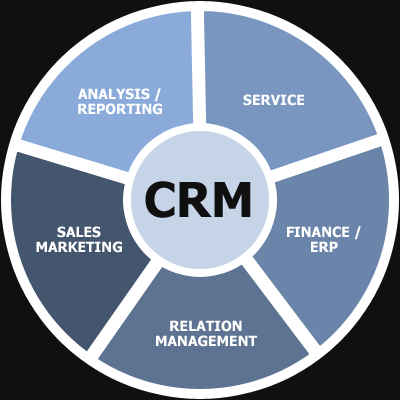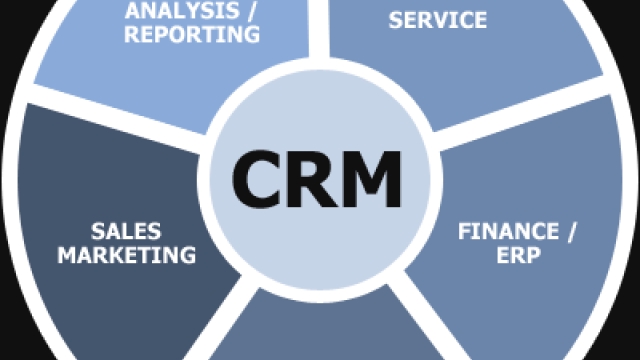In today’s fast-paced business landscape, staying organized and maintaining strong relationships with customers is key to success. That’s where a CRM system comes in. A CRM, or Customer Relationship Management, system is a powerful tool that can revolutionize the way you run your business. By centralizing your customer data, streamlining communication, and automating processes, a CRM system can transform the way you engage with your customers and drive measurable results. In this article, we’ll explore how implementing a CRM system can provide numerous benefits for your business, from improved customer satisfaction to increased sales opportunities. So, let’s dive into the world of CRM and discover how it can shape the future of your organization.
Improved Customer Management
A CRM system brings a multitude of benefits to businesses, and one of its most significant advantages is in the area of customer management. With a CRM system in place, businesses can greatly enhance their ability to effectively manage and nurture their customer relationships.
First and foremost, a CRM system provides businesses with a centralized hub for storing and accessing customer information. Gone are the days of scattered spreadsheets or disorganized files. By consolidating all customer data in one place, businesses can easily access and update customer information whenever needed. This enhanced accessibility ensures that businesses have the most up-to-date and accurate data at their fingertips, allowing for better decision-making and more personalized customer interactions.
Furthermore, a CRM system enables businesses to track customer interactions and activities. Every interaction, from phone calls to emails to social media engagement, can be recorded and logged within the CRM system. This not only prevents valuable customer information from falling through the cracks but also provides businesses with a comprehensive view of each customer’s journey. Armed with this information, businesses can proactively identify and address customer needs, resulting in improved satisfaction and loyalty.
Additionally, a CRM system facilitates effective communication and collaboration within the organization. With a centralized system, all team members can access the same customer information, eliminating silos and fostering cross-departmental collaboration. This shared knowledge enables businesses to deliver a consistent and cohesive customer experience, regardless of touchpoint or department involved. By breaking down internal barriers, a CRM system empowers businesses to deliver superior customer service and build stronger, more profitable relationships.
In conclusion, a CRM system revolutionizes customer management by providing businesses with a centralized source of customer information, enabling enhanced tracking of interactions and activities, and promoting effective communication and collaboration within the organization. With these capabilities, businesses can truly revolutionize their customer management processes, delivering exceptional experiences and driving long-term success.
Streamlined Sales Processes
One of the key benefits of implementing a CRM system in your business is the ability to streamline your sales processes. With a CRM system, you can optimize and automate various aspects of your sales operations, leading to enhanced efficiency and productivity.
The first way a CRM system can revolutionize your sales processes is through centralized data management. By having all customer information stored in a single system, sales teams can easily access and update relevant details, such as contact information, previous interactions, and purchase history. This eliminates the need for manual data entry or searching through multiple platforms, saving valuable time and minimizing the risk of errors.

Moreover, a CRM system provides a structured approach to managing leads and opportunities. Through lead scoring and tracking features, sales teams can prioritize their efforts based on the likelihood of conversion, focusing on high-value prospects. Automated reminders and notifications also ensure that no leads fall through the cracks, allowing sales reps to promptly follow up and close deals effectively.
Furthermore, a CRM system enables better collaboration and communication among sales teams. With shared access to customer data, sales representatives can easily collaborate on accounts, share insights, and coordinate their efforts. This fosters a more cohesive and aligned sales approach, maximizing the chances of success for the entire team.
In conclusion, implementing a CRM system can greatly streamline your sales processes. From centralized data management to optimized lead management and enhanced collaboration, a CRM system offers valuable tools and features that can revolutionize how your business handles sales.
Enhanced Business Growth
A CRM system can be a game-changer for businesses, enabling enhanced growth in multiple ways. By centralizing and organizing customer data, businesses can gain valuable insights that help streamline their operations, target the right customers, and make informed strategic decisions.
One of the key benefits of a CRM system is its ability to improve customer acquisition and retention. With access to comprehensive customer profiles, businesses can better understand their customers’ preferences, behavior, and buying patterns. This knowledge allows them to create personalized marketing campaigns, provide targeted product recommendations, and deliver exceptional customer experiences. Ultimately, this leads to increased customer satisfaction, loyalty, and ultimately, business growth.
Moreover, a CRM system provides businesses with a holistic view of their sales pipeline. It allows companies to track and manage leads, opportunities, and deals in one place, enabling better forecasting and more accurate sales projections. With this visibility, businesses can identify bottlenecks in the sales process, optimize their sales strategies, and improve conversion rates. These improvements in sales performance can translate directly into accelerated business growth.
Furthermore, a CRM system facilitates effective communication and collaboration within a business. By centralizing customer information, teams can easily share data, exchange feedback, and work together towards common goals. This streamlined collaboration fosters improved productivity, ensures consistent messaging, and enhances overall efficiency. As a result, businesses can take advantage of optimized workflows, reduce time spent on administrative tasks, and focus more on revenue-generating activities, all of which contribute to driving growth.
In conclusion, a CRM system can revolutionize businesses by empowering them with the tools and insights needed to enhance growth. From acquiring and retaining customers to optimizing sales processes and fostering collaboration, its impact on business growth cannot be underestimated. By harnessing the power of a CRM system, businesses can position themselves for success in today’s competitive market landscape.
